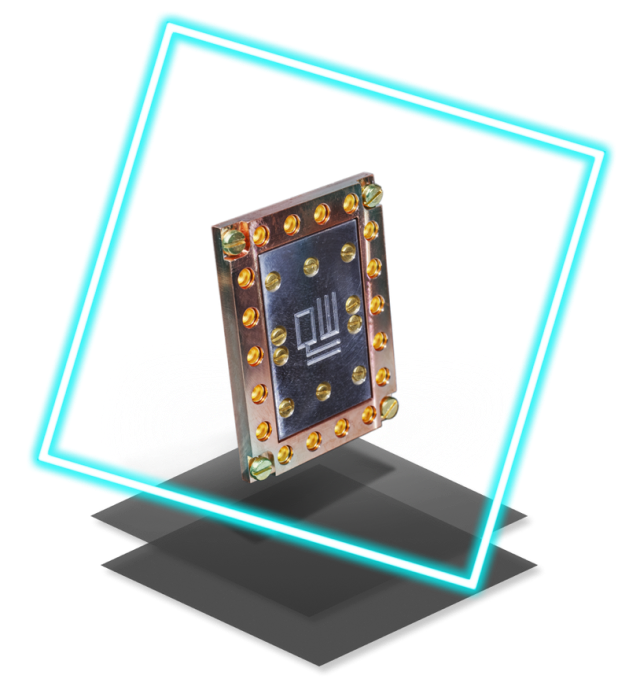It’s still very early days for quantum computing, but even so, we’re already seeing early signs of hardware and an ecosystem that’s starting to resemble the classical computing space, with different startups specializing in the different components that make up a quantum computer. Delft, Netherlands-based QuantWare basically wants to become the chip manufacturer for this ecosystem and today, the company announced that it can now offer researchers and other startups in the space a customer 25-qubit quantum processing unit (QPU). And in an industry with long lead times, QuantWare says it can deliver this new QPU, dubbed the Contralto, in 30 days.
The company launched its first processor last year. That was a five-qubit affair, with each qubit reaching 99.9% fidelity. That made for a nice proof of concept, and QuantWare co-founder and managing director Matthijs Rijlaarsdam noted that it has already been used to build full-stack quantum computers. “The five-qubit QPU allows people who are not able to make qubits to — for the first time — build a quantum computer because they can now get qubits. The 25-qubit QPU allows anyone in the field to get to the state of the art of the best laboratories in the world,” he explained and added that there are actually very few laboratories that are currently able to build a similar QPU (think ETH and Lincoln Labs).
The Netherlands is investing heavily in quantum startups and QuantWare, with its heritage as a spin-off of Delft University, has been able to attract a group of highly qualified researchers and engineers. Alessandro Bruno, another co-founder and the company’s director of Engineering, previously spent more than 10 years working on different aspects of quantum computing, including at the DICarlo lab at Delft University’s QuTech.
While Delft may not be the first place you think about when you think about quantum computing, it’s worth noting that it has become a hotbed for quantum innovation. In addition to a wide variety of startups that are, like QuantWare, often associated with the school, Microsoft set up a lab at the university in 2019, too, though we haven’t heard all that much about the company’s own efforts to build qubits lately. Maybe it’s no surprise that QuantWare has also hired engineers away from Microsoft.
Because of this existing tech ecosystem, QuantWare can get access to state-of-the-art cleanroom facilities to produce its superconducting QPUs. But even more importantly, the company has been able to collaborate with a lot of other quantum startups, too. “What also helps is this ecosystem of partners that we find ourselves in,” Rijlaarsdam said. “We are able to collaborate, for instance, with a control hardware maker that needs to test their control hardware. We can provide them with the chip that we need measured anyway.”
For the new QPU, potential buyers can choose from a library of components and buyers can choose how the qubits are wired together based on their specific needs. Because every qubit features multiple lines to control and read their state, it’s this hardware control system that also limits the size of the chip. “We chose to go with this particular layout because it shows what is basically the maximum you can do at this size,” he said. “Beyond this, those lines will become an issue. You’ll run out of space at the edges. The team expects to shift to a different technology for its next-generation chip, though Rijlaarsdam wasn’t quite ready to provide any details about that yet.
A quantum computer with a 25-qubit QPU can’t quite keep up with what IBM, IonQ, Rigetti and others can currently offer, but it is also QuantWare’s first play at selling its unit to the systems integrator market — and especially new players in this market. Rijlaarsdam told me that the company is already talking to a few companies that plan to build full-stack quantum systems based on its design. “We’re trying to enable people to become Dell — the Dell of quantum,” he said.


